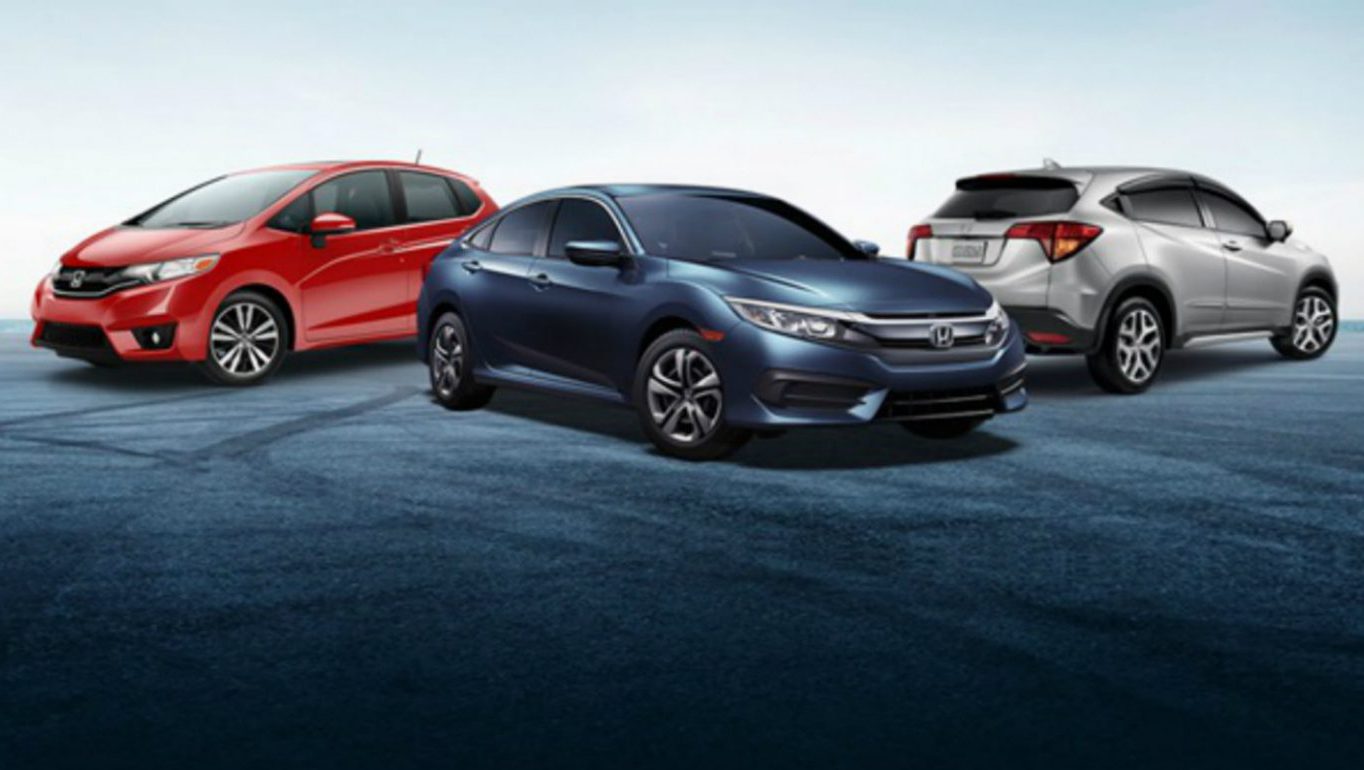Dependable Car Brands: Your Ultimate Guide to Worry-Free Driving
Dependable Car Brands: Your Ultimate Guide to Worry-Free Driving cars.truckstrend.com
In the symphony of modern life, the automobile plays a crucial, often indispensable, role. It’s our chariot to work, our family’s adventure vehicle, and our connection to the world beyond our doorstep. Given its importance, the last thing anyone wants is a vehicle that constantly demands attention, drains finances, or worse, leaves them stranded. This is where the concept of "dependable car brands" takes center stage.
A dependable car brand isn’t just about avoiding breakdowns; it encompasses a broader promise of consistent performance, minimal unexpected repair costs, longevity, and a strong sense of peace of mind for its owner. It means a vehicle that reliably starts every morning, navigates diverse conditions without a hitch, and retains its value over time. Choosing a dependable car is not merely a preference; it’s a strategic decision that impacts your safety, your wallet, and your overall quality of life. In this comprehensive guide, we’ll delve deep into what makes a car brand dependable, highlight the top contenders, and provide actionable advice for making an informed choice.
Dependable Car Brands: Your Ultimate Guide to Worry-Free Driving
The Pillars of Automotive Dependability
Dependability in an automobile is a multifaceted quality built upon several core pillars:
- Reliability: This is the most commonly understood aspect. A reliable car experiences fewer unexpected mechanical or electrical failures. It starts when you want it to, and its systems (engine, transmission, brakes, electronics) function consistently as designed, requiring minimal unscheduled repairs.
- Durability & Longevity: Beyond just not breaking down, a dependable car is built to last. Its components are robust, resisting wear and tear over extended periods and high mileage. This translates to a longer service life for the vehicle as a whole, often exceeding 150,000 or even 200,000 miles with proper maintenance.
- Low Maintenance Costs: While all cars require routine maintenance, dependable vehicles typically have fewer expensive, unforeseen repairs. Parts are often readily available and reasonably priced, and the engineering generally allows for straightforward diagnosis and repair, reducing labor costs.
- Consistent Performance: A dependable car delivers predictable and consistent performance throughout its lifespan. This includes engine power, braking efficiency, steering responsiveness, and the smooth operation of all auxiliary systems, ensuring a safe and predictable driving experience.
- Strong Resale Value: A brand known for its dependability often commands a higher resale value. This is a direct reflection of the market’s confidence in the vehicle’s long-term reliability and lower cost of ownership, making it a sound financial investment.
- Quality of Manufacturing & Engineering: At the heart of dependability lies superior design and production. This involves meticulous engineering, rigorous quality control, the use of high-quality materials, and often, a preference for proven technologies over experimental ones.

Top Contenders: Brands Renowned for Dependability
While vehicle dependability can vary by specific model and year, certain brands have consistently earned a stellar reputation for building reliable and long-lasting vehicles. Their commitment to quality engineering and manufacturing processes sets them apart:
- Toyota: Widely considered the gold standard for automotive dependability. Toyota’s reputation is built on conservative, well-proven engineering, robust components, and an unwavering focus on quality control. Models like the Camry, Corolla, RAV4, and Highlander are consistently top performers in reliability surveys, known for their ability to run for hundreds of thousands of miles with minimal issues.
- Honda: A close second to Toyota, Honda is celebrated for its highly reliable engines, refined driving dynamics, and excellent build quality. The Civic, Accord, CR-V, and Pilot are perennial favorites, offering a blend of efficiency, practicality, and enduring reliability.
- Lexus: As Toyota’s luxury division, Lexus inherits the parent company’s legendary reliability while adding premium materials, advanced features, and exceptional refinement. Lexus vehicles consistently top reliability charts, proving that luxury doesn’t have to come at the expense of dependability.
- Mazda: In recent years, Mazda has significantly elevated its game in terms of reliability and build quality. They combine engaging driving dynamics with robust engineering and high-quality interiors. Models like the Mazda3, CX-5, and CX-9 are increasingly recognized for their strong dependability scores.
- Subaru: Known for their standard Symmetrical All-Wheel Drive system and boxer engines, Subarus are often chosen for their ruggedness and capability in diverse weather conditions. While some older models had specific engine concerns (e.g., head gaskets), modern Subarus, like the Outback, Forester, and Crosstrek, are highly dependable, offering longevity and strong safety ratings.
- Hyundai & Kia: These South Korean brands have made monumental strides in quality and dependability over the last two decades. Backed by industry-leading warranties, their vehicles offer compelling value, stylish designs, and increasingly strong reliability scores across their diverse lineups, including popular models like the Elantra, Sonata, Sportage, and Telluride.
- Acura: Honda’s luxury arm, Acura offers a sportier driving experience combined with Honda’s inherent reliability. Models like the TLX, MDX, and RDX are known for their solid engineering and strong performance.
- Buick (GM): Often surprisingly high on reliability rankings, Buick vehicles, particularly their sedans and crossovers, are known for their comfortable rides and durable components, often appealing to those seeking quiet refinement without excessive complexity.


It’s crucial to remember that while these brands generally excel, individual model reliability can vary. Always cross-reference with specific model-year data.
Beyond the Brand: What to Look for When Buying a Dependable Car
While brand reputation is a strong starting point, smart buyers look beyond the badge. Here’s how to ensure you’re getting a dependable vehicle:
- Consult Independent Reliability Studies:
- Consumer Reports: Known for its rigorous testing and member surveys on reliability.
- J.D. Power: Conducts annual dependability studies (VDS for 3-year-old cars, IQS for new cars) based on owner reported problems.
- Edmunds, RepairPal, TrueCar: Offer reliability ratings and ownership cost estimates.
- Scrutinize Maintenance History (for Used Cars): A well-documented history of regular maintenance (oil changes, fluid flushes, tire rotations, scheduled services) is the strongest indicator of a vehicle’s future dependability. Avoid cars with patchy or non-existent service records.
- Read Owner Reviews and Forums: Real-world experiences from current and past owners can provide invaluable insights into common issues, ownership costs, and overall satisfaction.
- Get a Pre-Purchase Inspection (PPI): For any used car, regardless of brand or apparent condition, a thorough inspection by an independent, trusted mechanic is non-negotiable. They can identify underlying issues that might not be visible to the untrained eye.
- Consider Your Driving Needs and Environment: A car dependable in a mild climate might struggle in extreme cold or heat if not designed for it. High mileage driving might benefit from simpler, more robust engines.
- Understand Warranty Coverage (for New Cars): While a warranty doesn’t guarantee dependability, a comprehensive one (like those offered by Hyundai/Kia) provides significant peace of mind against potential early issues.
The Unseen Benefits of Owning a Dependable Car
The advantages of choosing a dependable car extend far beyond avoiding repair shops:
- Peace of Mind: Knowing your car is unlikely to leave you stranded or demand unexpected expenses provides immense stress relief.
- Financial Savings: Lower repair bills, potentially better fuel efficiency (due to optimal running condition), and higher resale value all contribute to significant long-term financial benefits.
- Time Savings: Less time spent at the mechanic means more time for work, family, or leisure activities.
- Enhanced Safety: Unexpected mechanical failures (like sudden brake issues or engine stalls) can be dangerous. Dependable cars reduce this risk.
- Environmental Impact: A car that lasts longer means less frequent manufacturing and disposal, contributing to a smaller carbon footprint over its lifespan.
- Reduced Depreciation: As mentioned, dependable cars tend to hold their value better, making your initial investment more secure.
Challenges and Nuances in Automotive Dependability
Even with the best brands, there are nuances to consider:
- Model-Specific Issues: A brand’s overall reputation doesn’t guarantee every single model will be flawless. Some models, even from highly dependable brands, might have specific known issues.
- Age and Mileage: All mechanical devices wear out. Even the most dependable car will eventually require more significant repairs as it accumulates age and miles.
- Driving Habits and Maintenance: Aggressive driving, neglecting routine maintenance, and operating in harsh conditions can significantly reduce a vehicle’s lifespan and reliability, regardless of its brand.
- Technology Creep: Modern vehicles are packed with complex electronics, infotainment systems, and advanced driver-assist features. While beneficial, these systems can introduce new potential points of failure that weren’t present in simpler vehicles.
- Recalls: Even dependable brands issue recalls. It’s important to address recalls promptly, as they are often safety-related or can prevent future issues.
Maximizing Your Car’s Dependability: Practical Tips
Choosing a dependable brand is only half the battle; maintaining that dependability is crucial.
- Adhere to the Manufacturer’s Maintenance Schedule: This is paramount. Follow the recommended intervals for oil changes, fluid checks (transmission, brake, coolant), tire rotations, filter replacements (air, cabin, fuel), and major services (timing belts, spark plugs).
- Address Issues Promptly: Don’t ignore warning lights, strange noises, or unusual smells. A small problem left unaddressed can quickly escalate into a major, costly repair.
- Drive Responsibly: Avoid harsh acceleration and braking, excessive idling, and constantly driving at extreme speeds. Smooth, consistent driving reduces stress on components.
- Use Quality Parts and Fluids: When replacing components or fluids, opt for OEM (Original Equipment Manufacturer) parts or reputable aftermarket alternatives. Using cheap, substandard products can compromise reliability.
- Keep it Clean: Regular washing and waxing protect the paint and body from rust, especially in areas with road salt. Cleaning the interior also prevents wear and tear on upholstery and controls.
- Regular Inspections: Beyond scheduled maintenance, get your car inspected periodically by a trusted mechanic to catch potential issues before they become serious.
Table: Examples of Dependable Car Brands & General Pricing (New Vehicles)
This table provides a general overview. Specific prices vary widely based on model, trim level, options, and market conditions.
| Brand Name | Reputation for Dependability | General New Vehicle Price Range (USD) | Key Strengths (Related to Dependability) |
|---|---|---|---|
| Toyota | Excellent | $25,000 – $60,000+ | Bulletproof engineering, robust components, high manufacturing quality, focus on proven tech. |
| Honda | Excellent | $25,000 – $55,000+ | Highly reliable engines, strong build quality, efficient powertrains, consistent performance. |
| Lexus | Outstanding | $40,000 – $100,000+ | Luxury refinement combined with Toyota’s reliability, superior materials, meticulous assembly. |
| Mazda | Very Good | $25,000 – $45,000+ | Significant quality improvements, engaging dynamics, well-engineered powertrains, intuitive tech. |
| Subaru | Very Good | $28,000 – $50,000+ | Durable AWD systems, robust construction, known for longevity (especially with consistent maintenance). |
| Hyundai | Good to Very Good | $22,000 – $55,000+ | Massive quality strides, attractive designs, backed by excellent warranty, competitive technology. |
| Kia | Good to Very Good | $22,000 – $60,000+ | Similar to Hyundai, stylish offerings, strong warranty support, diverse and competitive lineup. |
| Acura | Very Good | $35,000 – $65,000+ | Honda’s luxury/performance division, strong engines, reliable electronics, good build quality. |
| Buick | Good to Very Good | $30,000 – $55,000+ | Often scores high in reliability surveys, comfortable, less complex systems, solid GM engineering. |
Disclaimer: Prices listed are general ranges for new vehicles and can fluctuate significantly based on model, trim, options, regional market demand, and incentives. This table is intended as a guide, not a definitive pricing list.
Frequently Asked Questions (FAQ)
Q1: What exactly makes a car brand "dependable"?
A: A dependable car brand consistently produces vehicles with a low frequency of unexpected mechanical or electrical repairs, a long lifespan, consistent performance, and reasonable maintenance costs over time.
Q2: Are luxury cars less dependable than economy cars?
A: Not necessarily. Brands like Lexus (Toyota’s luxury division) are among the most dependable in the industry. However, some luxury brands might incorporate more complex, cutting-edge technology which, while innovative, can sometimes introduce more potential points of failure than simpler economy cars. Always check specific reliability ratings.
Q3: Is it always worth paying more for a dependable brand?
A: Often, yes. While the initial purchase price might be higher, a dependable car typically offsets this with lower long-term ownership costs (fewer repairs, better fuel efficiency, higher resale value). This often leads to a lower total cost of ownership over the vehicle’s lifespan.
Q4: How can I check the reliability of a specific car model?
A: Consult independent research organizations like Consumer Reports, J.D. Power, Edmunds, and RepairPal. These sources gather data from thousands of owners and professional testing. Additionally, read owner forums and reviews for real-world insights.
Q5: Does regular maintenance really affect a car’s dependability?
A: Absolutely. Regular, scheduled maintenance is the single most important factor in preserving a car’s dependability. Neglecting oil changes, fluid checks, and other services dramatically accelerates wear and tear, leading to more frequent breakdowns and costly repairs.
Q6: What’s the difference between "reliability" and "durability"?
A: "Reliability" typically refers to how consistently a car performs without unexpected breakdowns or defects during its operational life. "Durability" refers to how long a car’s components, or the car itself, lasts over time under normal use and proper maintenance. A durable car is often reliable, and a reliable car contributes to durability, but they are distinct concepts.
Concluding Summary
Choosing a dependable car brand is one of the most intelligent decisions a car buyer can make. It’s an investment in peace of mind, financial stability, and uninterrupted mobility. By understanding the core pillars of dependability, researching reputable brands, and committing to diligent maintenance, you can significantly enhance your car ownership experience. Remember, a car isn’t just a mode of transport; it’s a vital part of your daily life. Opting for dependability ensures that this part of your life remains as smooth, efficient, and worry-free as possible, allowing you to focus on the road ahead, confident in your vehicle’s unwavering performance.



